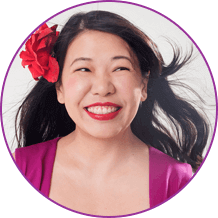The single most important relationship skill is not communication, it’s taking ownership.
Successful relationships require taking ownership of your “experience.”
What is your “experience?”
Your “experience” is what happens inside your body and your mind in response to events. It is composed of your thoughts, emotions, and physical sensations.
Your experience is involuntary, it just “happens.” It’s neither good or bad or right or wrong. Your experience is always OK and valid.
Your thoughts
We spend a lot of time in our head listening to our thoughts. Sometimes thoughts just pop into our consciousness automatically, and sometimes we direct our thoughts with intentionality to solve a problem, express ourselves, make a decision, etc.
And some of our thoughts are judgments. A “judgment” is making a meaning or interpretation in response to an event (right, wrong, good, bad, theory, explanation, reasoning, logic, etc).
Facts Vs. Judgments
You and a friend go for a walk. You say “It’s a beautiful day.”
Your friend responds “No, it sucks.”
Your reaction is to be surprised. You can’t imagine how anyone could experience such a warm, sunny day to “suck.” Your impulse might be to argue with them- “Are you kidding? Look at that clear blue sky. It’s a gorgeous day!”
This is a very small example of a huge dynamic that creates more relationship conflict than anything else you can imagine.
So let’s take a look at this. You observe the following facts:
The sky is blue
The temperature is 76 degrees
You are walking in a park
Facts are typically measureable events and can be observed through a video camera. If you poll 100 people about a fact, such as “Is the sky blue?” you will typically get almost unanimous agreement that it is blue (except from the color blind!). If you poll 100 people and ask “Is the sky pretty?”, you are asking for an opinion or judgment and will typically get less than 100% agreement.
Your experience of the day is positive. You interpret the blue sky as “beautiful,” the temperature as “perfect” and “comfortable,” and your body “feels good” to get exercise by walking. These are meanings you’ve created from your experience of the facts or events.
Your friend’s experience is negative. We don’t know why yet, but there are many reasons why they might judge the day to “suck.”
You have a choice
In the above example, you have a critically important choice to make in your response to your difference of opinion about the day-
Option 1: Focus on the difference (e.g. “Are you crazy? Look at that blue sky and tell me it’s not a beautiful day!”)
Option 2: Focus on curiousity, compassion (e.g. “What’s going on for you?”)
The unconscious knee-jerk response is often to focus on the difference in our experiences and judgments. This choice discounts and argues with any point of view that doesn’t mirror ours and leads to conflict.
It requires a conscious choice to accept differences and not impose our own experience and judgments on others. To come from a place of curiosity about and compassion for a human being who we care about who thinks and feels differently from ourselves.
The Importance of Ownership
It is not someone else’s fault that you are thinking or feeling something good, bad, or indifferent. It is coming completely from inside you.
The principle of ownership can be hard to grasp when our partner provides the trigger for how we feel and react, but the fact is that while our experience is involuntary, we do have complete choice over the meanings we create and the actions we take.
Behavior follows patterns. Nothing ever happens just once. If you don’t strive to take complete ownership of your thoughts, feelings, and judgments, you will follow a pattern of blaming others, playing victim, and your life and relationships will suffer.
How to take ownership – A Four-Step Paradigm
I have found that the easiest way to take ownership of your experience in a relationship is to keep in mind the triad of Facts, Judgments, and Feelings-
Facts- usually a measureable event (“the sky is blue”)
Judgments- the meaning we make of the event (“the blue sky is pretty”)
Feelings- our emotions and sensations (warm, cold, happy, sad, etc)
Oftentimes, what we human beings do, especially when we’re upset or excited, is we make judgments about something and try to make that be the fact.
“You make me so angry.”
“You’re a jerk.”
“I love you.”
“War is hell.”
“Ice cream is good.”
These are all judgments you might feel so strongly about you believe them to be true. While they might be your personal truth at the time, they are not facts, no matter how strongly you believe them to be true.
It all starts with an event or stimulus. Something happens that gives us a certain experience.
Then, we react to our experience by making meaning of it and forming judgments.
Then, our judgments stimulate our emotions- mad, sad, glad, fear, shame.
And this all happens in the blink of an eye.
We can then react consciously or unconsciously. If we react unconsciously we will act out our feelings and judgments, whatever they are.
If we react consciously we will separate the facts from our feelings and judgments and then decide what meanings to make and actions to take. This begins by reviewing the facts in your head and making sure you’re not mixing in judgments.
Step One: Review the Facts
“OK, the sky is blue, we’re walking in the park together, the temperature is about 76 degrees, I just said “It’s a beautiful day” and my friend said “No, it sucks.”
Step Two: Review your Judgments
“Hmm, I believe it’s a gorgeous day, walking here is wonderful, and I judge that my friend isn’t getting it at all.”
Step Three: Identify your Feelings
“I’m glad it’s such a beautiful day, sad that my friend is troubled and not enjoying it, frustrated and angry at their negativity.”
Step Four: Make a Conscious Choice
Once you’ve separated the facts from your judgments and feelings you are in a much better position to decide what to think, feel, and how to react. Notice in the above example that the judgments and feelings are mixed, which is common. If you are conscious you can choose amongst the mix of judgments and feelings that you will embrace and act upon, and which you will discard or leave alone.
In the above example you might decide to focus upon your sadness that your friend is having a bad day and choose a compassionate response, and to discard your judgment that they aren’t “getting it.”
The Power of Taking Ownership
It is our nature to have lots of thoughts, judgments, and feelings; some that we want to identify with, and some that we don’t. It is common to confuse judgments with facts because we believe them so strongly. It is common to confuse feelings with judgments as well (e.g. “I feel like you’re so wrong about that!”). It is common to have conflicting reactions, such as “You’re a jerk” and “I love you” at the same time. While our experience is involuntary and overwhelmingly strong and real for us at times, as conscious beings we can pick and choose our truth and what we say and do about it.
Therefore, we are responsible for what we feel, think, say, and do. There are no victims in the conscious adult world. Taking ownership gives us power over our choices and destiny, and thus is the key to a successful and happy life and relationship.
2015 Relationship Coaching Institute, LLC, adapted with permission.
With all said, it is usually challenging for change to take place when there are entrenched communication partners. I am a certified relationship coach with Relationship Coaching Institute. Find out how I can support you and your partner in strengthening your relationship here.
About Dr. Martha Tara Lee
 Surrounded by friends who were sexually inhibited and struck by dire lack of positive conversations around sex and sexuality in Singapore, Dr. Martha Tara Lee set out to make a positive difference in embarking on her doctorate in human sexuality before launching Eros Coaching in 2009. Today, she remains dedicated to working with individuals and couples who wish to lead self-actualised and pleasure-filled lives.
Surrounded by friends who were sexually inhibited and struck by dire lack of positive conversations around sex and sexuality in Singapore, Dr. Martha Tara Lee set out to make a positive difference in embarking on her doctorate in human sexuality before launching Eros Coaching in 2009. Today, she remains dedicated to working with individuals and couples who wish to lead self-actualised and pleasure-filled lives.
She also holds certificates in counselling, coaching and sex therapy, and has most recently completed her fourth degree – a Masters in Counselling. In practice for more than seven years, she is the only certified sexuality educator by the American Association of Sexuality Educators, Counselors and Therapists (AASECT) in Singapore.
Often cited in the local media, Dr. Lee is the appointed sex expert for Men’s Health Singapore, and Men’s Health Malaysia. She was recognised as one of ‘Top 50 Inspiring Women Under 40′ by Her World in July 2010, and one of ‘Top 100 Inspiring Women’ by CozyCot in March 2011. She is the host of weekly radio show Eros Evolution on the OMTimes Radio Network. She has published three books: Love, Sex and Everything In-Between, Orgasmic Yoga and From Princess to Queen.
Martha works with individuals and couples in private coaching sessions, and conducts her own workshops. She takes prides in making sure all her workshops are also fun, educational, and sex-positive. This comes easily to her because even though she is extremely dedicated and serious about her work, she fundamentally believes that sex is meant to be fun, wonderful, amazing and sacred. As such, this serious light-heartedness has shone through again and again. For her full profile, click here. Email her here.
https://www.facebook.com/eroscoaching/
https://twitter.com/drmarthalee



